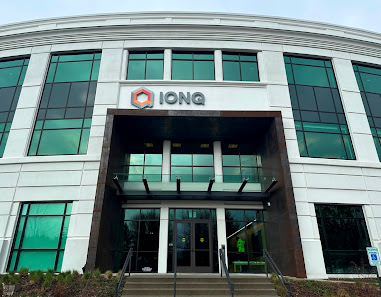As of February 24, 2025, ATI Inc. (NYSE: ATI) stands as a prominent producer of high-performance materials and solutions, primarily serving the aerospace, defense, electronics, medical, and specialty energy markets.
Financial Overview:
Fourth Quarter 2024: ATI reported sales of $1.17 billion, marking a 10% increase year-over-year. Net income attributable to ATI was $137.1 million, or $0.94 per share.
Full Year 2024: The company achieved sales of $4.4 billion, the highest since 2012, representing a 5% increase from 2023. Operating cash flow for 2024 was $407 million, a significant rise from $86 million in 2023. Free cash flow increased by 50% to $248 million.
Cash Position: ATI maintained a strong cash position with $721 million at year-end 2024.
Technological Advancements:
In 2024, ATI commissioned a state-of-the-art Additive Manufacturing Products facility in Margate, Florida. This 132,000-square-foot facility enhances ATI's metal additive manufacturing capabilities, featuring large-format printing capable of producing parts up to 1.5 meters tall with complex geometries. The facility integrates design, printing, heat treating, machining, and inspection processes under one roof, streamlining production for aerospace, defense, and space markets.
Clients and Partnerships:
ATI has secured significant contracts, including a notable agreement with Bechtel Plant Machinery Inc. (BPMI) for the U.S. Naval Nuclear Propulsion Program. This partnership underscores ATI's commitment to delivering high-quality, specialized materials for critical defense applications.
Stock Performance:
As of February 24, 2025, ATI's stock is trading at $57.15 per share. The company has demonstrated a robust financial trajectory, with a 10% year-over-year increase in fourth-quarter sales and a 5% rise in annual sales for 2024. ATI's strategic focus on the aerospace and defense sectors, combined with its technological advancements and strong financial management, positions it favorably for sustained growth in the high-performance materials market.
ATI Inc. (NYSE: ATI) continues to focus on its primary sectors, notably aerospace and defense, where it has made significant investments to enhance its titanium production capabilities.
Key Investments in Titanium Production:
Richland, Washington Expansion: In July 2023, ATI announced an expansion of its titanium melting operations in Richland, Washington. This initiative aims to increase the company's production of aerospace and defense-grade titanium by approximately 35% over 2022 levels, addressing the growing demand in these sectors.
Bakers, North Carolina Forging Press: By March 2024, ATI commissioned a state-of-the-art 12,500-ton billet forging press in Bakers, North Carolina. This facility is critical for producing high-performance titanium components, particularly for aerospace applications.
ATI Inc. (NYSE: ATI) maintains a diverse portfolio of contracts with both the U.S. government and various commercial entities, reflecting its extensive capabilities in specialty materials and services.
U.S. Government Contracts:
Department of Defense (DoD): ATI Defense collaborates closely with U.S. defense departments and contractors, supplying specialty materials and armor products essential for applications such as airframes, jet engines, hypersonics, land vehicles, naval systems, and weaponry.
Department of State (DoS): Since 2014, ATI has been under a six-year Indefinite Delivery/Indefinite Quantity (IDIQ) contract to provide preventive maintenance, upgrades, and repair services for Building Automation Systems (BAS) at U.S. embassies and consulates worldwide.
Department of the Treasury: In December 2024, ATI Government Solutions LLC secured a contract valued at approximately $19.84 million to provide engineering support for the Internal Revenue Service's (IRS) Office of the Chief Information Officer (OCIO) Direct File program.
National Aeronautics and Space Administration (NASA): ATI Specialty Alloys & Components, LLC, a subsidiary of ATI, has been awarded contracts by NASA, including one in 2021, underscoring ATI's role in supplying specialized materials for aerospace applications.
Commercial Contracts:
- Aerospace and Defense Sector: In June 2023, ATI announced securing approximately $1.2 billion in new sales commitments from leading aerospace and defense companies. These agreements, spanning from 2024 to 2029, involve the supply of nickel and titanium materials critical for commercial engine and airframe manufacturing, as well as ground-vehicle armor.
These contracts and partnerships highlight ATI's strategic engagements across various sectors, emphasizing its commitment to delivering high-performance materials and services to both governmental and commercial clients.



